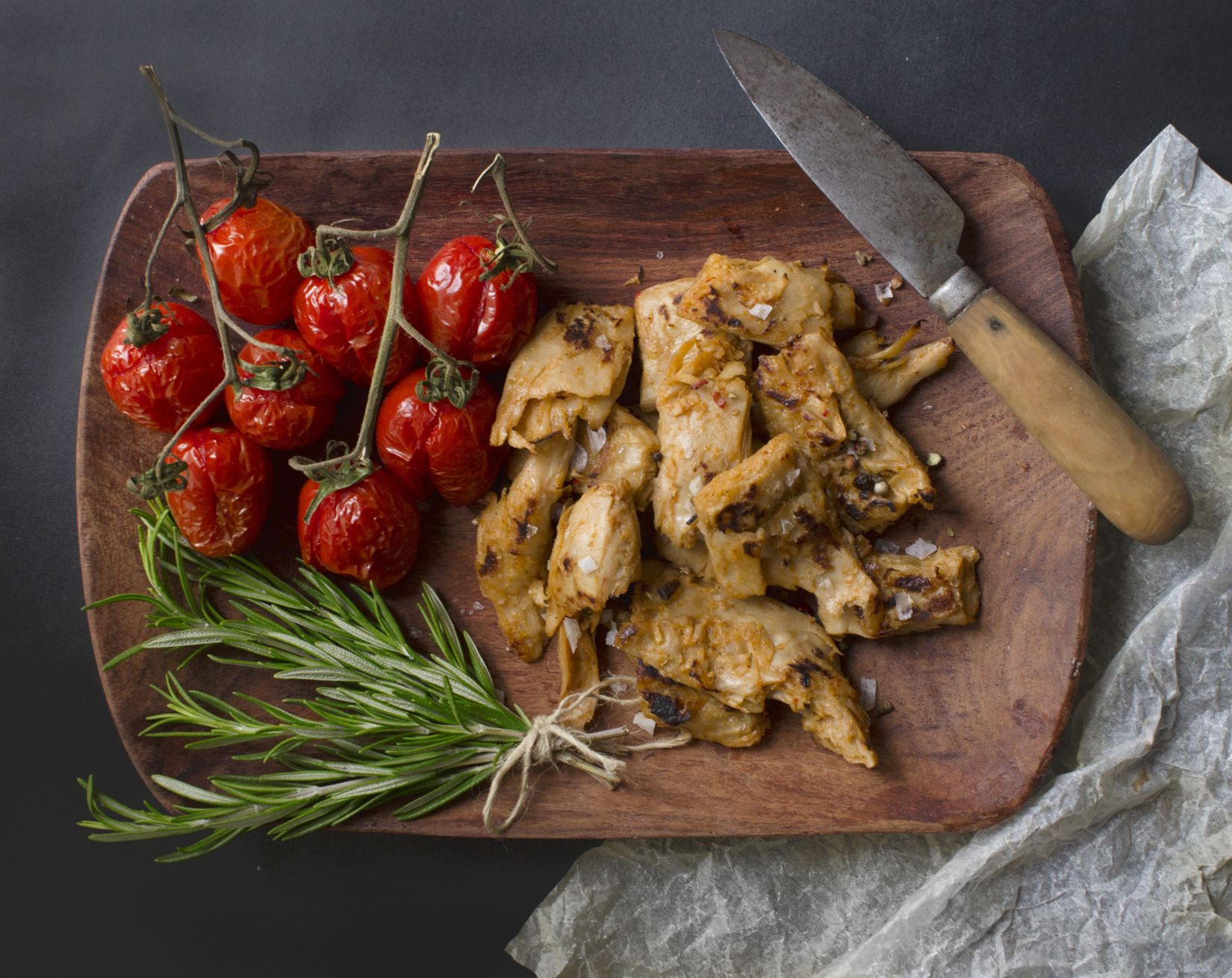
From activist to selling products to Celler de Can Roca. In short, this is the story of Marc Coloma, founder of Foods for Tomorrow, a company that develops innovative food based on vegetables. Coloma had always been a defender of animal rights and was head of an NGO, but he saw that raising public awareness was not enough, and that he had to offer an alternative to meat. That is why he created Heura, a vegetable protein that seems a lot like a chicken fillet and that such important restaurants as that of the Roca brothers are using to make dishes.
"Vegetable proteins have two drawbacks: a lot of people do not know how to cook them and they are not attractive,” says Coloma. For this reason, the entrepreneur decided to create a new product that was nicer to look at and easy to cook in different recipes. Heura is a new generation protein and is produced with a process that gives it a fibrous structure, “so that when people taste it they think they are eating meat,” he points out. Such has been Heura’s success that the company hopes to raise its turnover to half a million euros this year.
The recipe and formula for Heura was designed in Barcelona by the Foods for Tomorrow team
The recipe and formula for the product was designed in Barcelona by the Foods for Tomorrow’s team of 12 people. Yet, they are not the only ones developing this new generation of innovative vegetable products, in fact the Barcelona startup was inspired by US companies that already use the technology to make sustainable foods.
From activist to entrepreneur
“The idea of setting up the company is due to my past as an activist,” says Coloma. The startup’s founder was very committed to helping animals and ran an NGO in Catalonia devoted to defending their rights. Coloma noticed that he was spending a lot of time trying to raise people’s awareness of the food options available to them that would not cause harm to animals, but “felt that instead of informing people I had to go a step further and offer them new options.” Thus, after two long years of research, Foods for Tomorrow was born in February 2017.
To create Heura, a part of the production process takes place in Barcelona, at Mercabarna, and the other part in the Netherlands, where the company has an agreement with a firm with the capacity to raise production. At the same time, “we are looking for a place in the centre of Europe so that when we begin to export we can reach many more places,” says Coloma.

Marc Coloma, founder of Foods for Tomorrow | Ceded
Heura is to be found in local specialist shops and some Catalan supermarket chains, such as Llobet supermarkets. It can also be found in restaurants, both vegetarian ones and renowned ones, such as El Celler de Can Roca.
The company already has 135 clients and has achieved a turnover of 115,000 euros in the eight months it has been on the market. Today it is sold in most provinces in Spain and exports to France have also begun.
Flexitarianism, a new trend in food
Foods for Tomorrow’s main customers are “vegetarians and vegans who find something completely different and new in our product,” says Coloma. Moreover, it is increasingly popular in flexitarianism, those people who are actively looking to reduce their meat consumption but want high quality and healthy protein.
Heura is a very versatile product and easy to fit into different recipes, and it is this added value that Foods for Tomorrow tries to exploit. Through its website and Instagram account, the startup offers plenty of information about how to use Heura in dishes.
The company has achieved a turnover of 115,000 euros in the eight months it has been on the market
Digital marketing and publicity at the point of sale have been the two main advertising tools used to spread the word about Heura. “On the one hand, shops and restaurants act as great promoters of our product and, on the other, word-of-mouth works very well on social media, as it is such a different product that it gets people’s attention and they share it a lot," says Coloma.
Yet, the Foods for Tomorrow team has not stopped innovating in the food sector and is already developing more flavours for Heura. Later in the year, they are planning to launch a new brand of 100% vegetable-based products, such as ice cream and hamburgers. For 2018, the company aims to raise turnover to half a million euros and enter the international market.